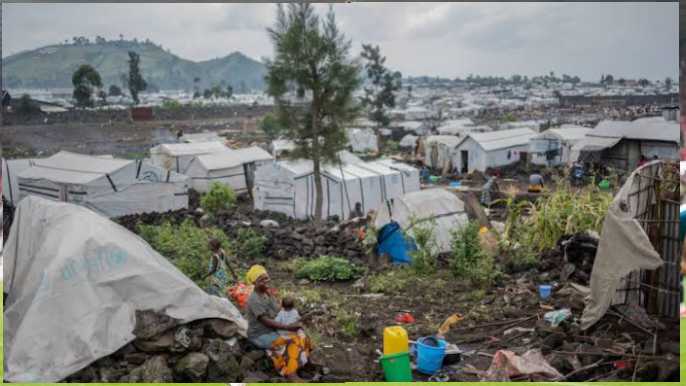Congo Crisis Deepens: M23 Rebels Take Control of Key City Bukavu
Congo Conflict Intensifies as M23 Rebels Seize Control of Bukavu: the Rwandan-backed March 23 Movement (M23) rebels have seized control of Bukavu, the second-largest city in the country’s eastern region. This development follows their earlier capture of Goma in late January, marking a substantial expansion of territory under M23 control since the resurgence of their insurgency in 2022.
The takeover of Bukavu, a vital commercial hub, and the strategic Kavumu airport in the nearby town of Kavumu, has further undermined the authority of the Congolese government in the eastern provinces. The withdrawal of Congolese and allied Burundian troops, aimed at preventing urban warfare, left a security vacuum that led to widespread looting and a prison break. In response, the M23 rebels have pledged to restore order and assist the local population, stating that their forces are working to secure the city and its residents.
The rapid advance of M23 has intensified fears of a broader regional conflict. The DRC government accuses Rwanda of supporting the rebels, a claim Rwanda denies, asserting its actions are defensive measures against Hutu militias operating in the DRC. The United Nations and several Western nations have echoed concerns about Rwanda’s alleged involvement, warning that the situation could escalate into a wider war reminiscent of the conflicts that devastated the region in the late 1990s and early 2000s.
The M23’s control over Bukavu and surrounding areas grants them access to significant mineral resources, including tantalum, cobalt, copper, coltan, lithium, tin, tungsten, and gold. These minerals are crucial to global industries, particularly in the production of electric vehicle batteries and mobile phones. The DRC is the world’s leading producer of tantalum and cobalt, and the M23’s occupation of mineral-rich territories has raised concerns about the potential exploitation and illicit trade of these resources.
The humanitarian impact of the conflict is severe, with over 6 million people displaced due to ongoing violence, constituting one of the world’s most significant humanitarian crises. The recent hostilities have exacerbated the situation, leading to further displacement and suffering among the civilian population. International organizations have called for immediate action to address the escalating crisis and prevent further deterioration of regional stability.
As the situation continues to evolve, the international community faces mounting pressure to intervene and support efforts to restore peace and security in the DRC. The complexities of regional politics, historical grievances, and the lucrative mineral trade present significant challenges to resolving the conflict. Diplomatic initiatives and concerted efforts are urgently needed to prevent further escalation and to address the underlying causes of the unrest.

